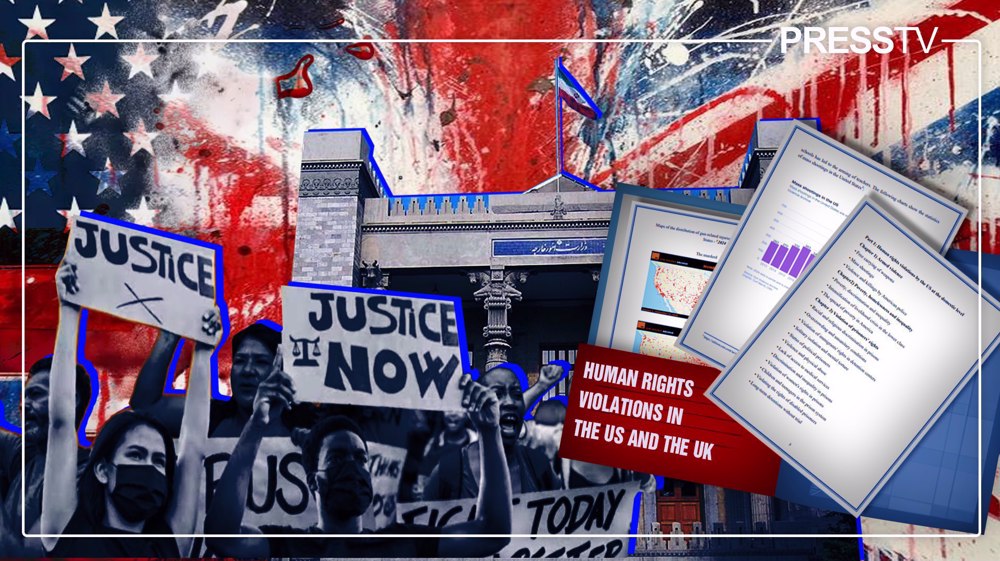CIA broke own limits on human experimentation: Report
The US Central Intelligence Agency had explicit guidelines for “human experimentation” on terrorism detainees as part of its controversial rendition, detention and interrogation program, according to a newly declassified document.
The document containing the guidelines was obtained under a Freedom of Information Act request by the American Civil Liberties Union (ACLU) and shared with The Guardian newspaper, which published it on Monday.
The CIA, however, redacted one of the four subsections on human experimentation.
The guidelines--dated 1987, updated over the years and still in effect at the CIA--give the agency’s director the power to “approve, modify, or disapprove all proposals pertaining to human subject research.”
Former CIA director George Tenet--who approved abusive interrogation techniques, including waterboarding--instructed the agency’s health staff to oversee the torture of detainees during interrogation sessions.
The newly-declassified document raises new questions about the CIA’s torture program, even though the agency’s guidelines apparently rule against “research on human subjects” without their “informed consent,” The Guardian reports.
After reviewing the document, experts consulted by The Guardian argued that the CIA deliberately twisted basic definitions of human experimentation to ensure its torture program continued.
“Crime one was torture. The second crime was research without consent in order to say it wasn’t torture,” said Nathaniel Raymond, a former war-crimes investigator with Physicians for Human Rights and now a researcher with Harvard University’s Humanitarian Initiative.
Experts assessing the document said the CIA violated the limits of its medical research, set by the human-experimentation guidelines, during the agency’s interrogations, detentions and renditions of terrorism suspects after the September 11, 2001 attacks.
The presence of medical workers during brutal interrogations of suspects like Abu Zubaydah, the first detainee known to be waterboarded in CIA custody, was difficult to reconcile with the agency’s requirement of “informed consent” on human experimentation subjects, experts told The Guardian.

The CIA insists that the presence of the agency’s doctors, known as the Office of Medical Services (OMS), ensured its techniques were in accordance with responsible medical practices.
However, the Senate intelligence Committee’s landmark report on CIA torture, partially declassified six months ago, reveals unease among some OMS doctors with their role in the torture program.
Zubaydah “seems very resistant to the water board,” an OMS official emailed in August 2002, according to The Guardian. “No useful information so far ... He did vomit a couple of times during the water board with some beans and rice. It’s been 10 hours since he ate so this is surprising and disturbing. We plan to only feed Ensure for a while now. I’m head[ing] back for another water board session.”
Based on the Senate report, the CIA employed brutal techniques like waterboarding, physical abuse, sleep deprivation, mock executions, and threats of sexual abuse to interrogate terror suspects imprisoned after the 9/11 attacks.

Other physicians and human rights experts have gone beyond the findings of the Senate report, accusing the CIA medical staff of facilitating the agency’s human experimentation by blurring the lines between medical aid to detainees and keeping them capable of enduring further torture.
In an analysis about the Senate’s torture report, The Nation Magazine concluded last year that human experimentation was a “core feature” of the CIA’s torture program.
The Senate report specifically named two psychologists, James Mitchell and Bruce Jessen, who were hired by the CIA to lead its experimentation project, the magazine said. The duo designed interrogation and detention protocols that they applied to people held in the CIA’s secret “black sites.”
The CIA defended the decision to hire the psychologists at the time. “We believe their expertise was so unique that we would have been derelict had we not sought them out when it became clear that CIA would be heading into the uncharted territory of the program.”
HRJ/HRJ
‘Ethnic cleansing’: Hamas blasts Israeli attacks on Gaza hospital amid intl. silence
Saudi delegation meets HTS leader at presidential palace in Damascus
Relentless Israeli ceasefire violations justify need for self-defense: Lebanese MP
Tel Aviv tells Damascus Israeli forces will remain in occupied territory: Report
Dec. 22: ‘Axis of Resistance’ operations against Israeli occupation
‘Abhorrent’: Oxfam says only 12 trucks delivered aid in North Gaza since Oct.
VIDEO | Leader receives religious eulogists on Hazrat Fatima birth anniv.
Pope Francis slams Israel’s ‘machine-gunning’ of Gaza children










 This makes it easy to access the Press TV website
This makes it easy to access the Press TV website